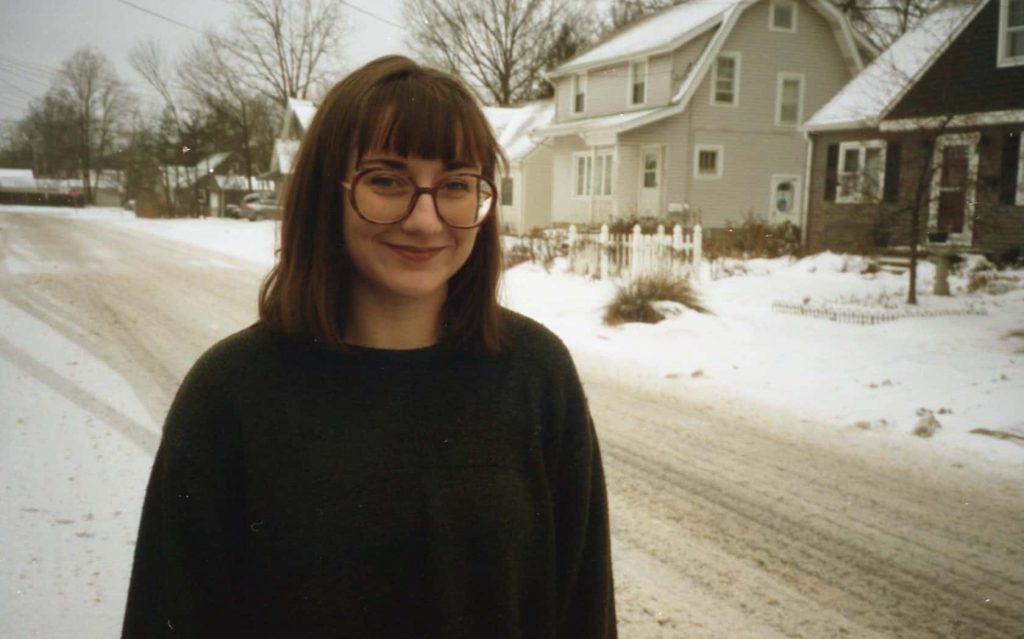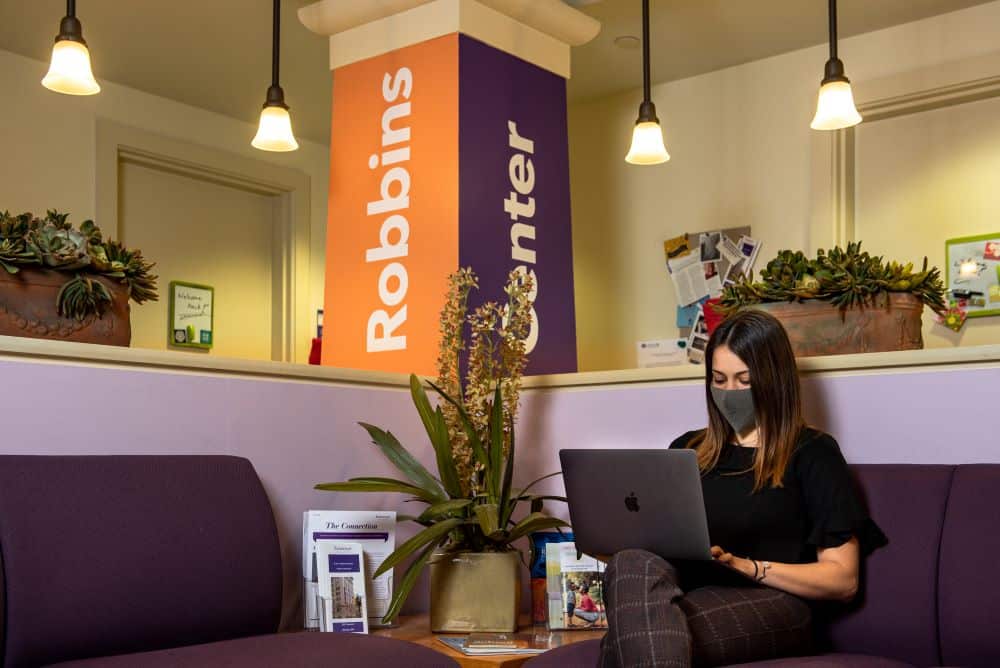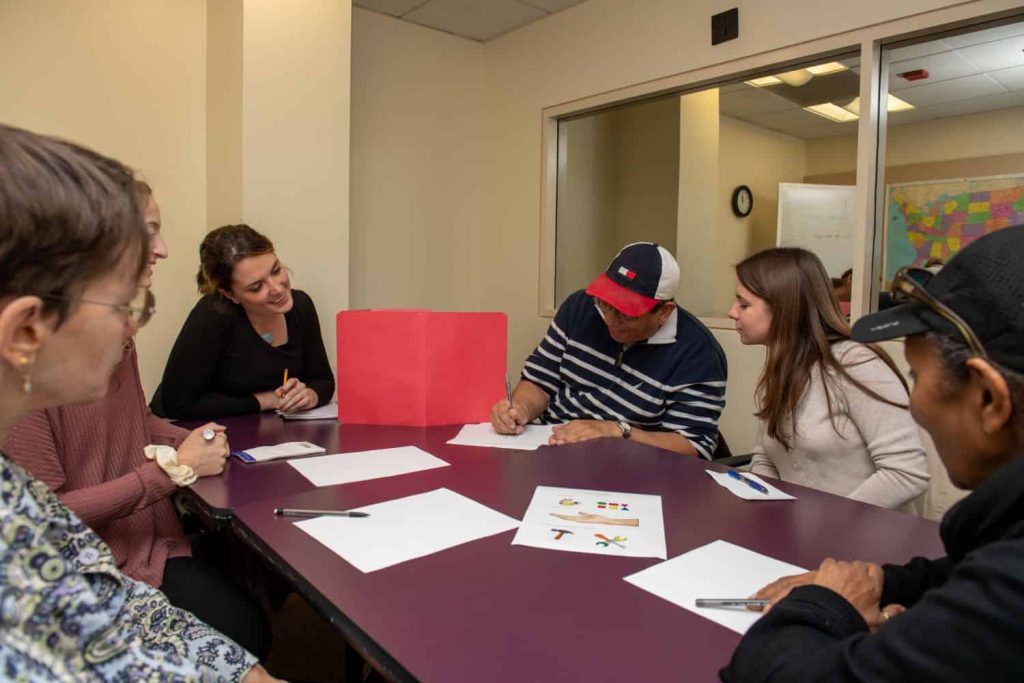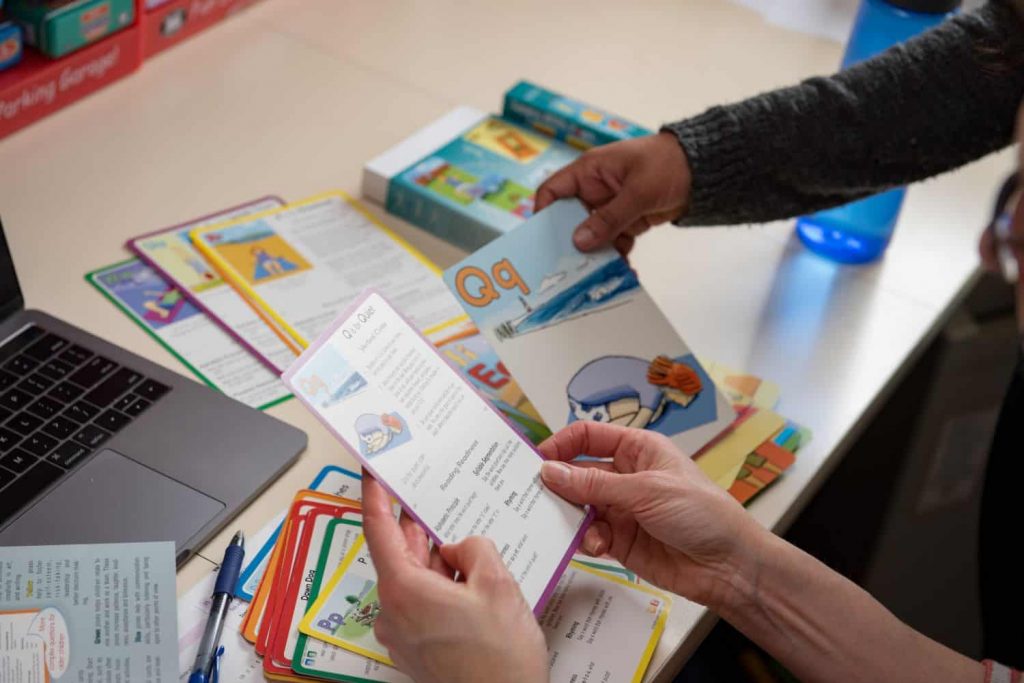
Speech pathology is a rapidly growing field with lots of demand for workers. If you’re searching for the perfect speech pathology grad program for you, keep reading! Today I’m going to give you a glimpse of what it’s like to be a student in Emerson’s Communication Disorders (MS) program. I’ll talk about how I chose this program, what I’ve experienced at Emerson, and what comes after graduation.

Why Emerson?
One thing that drew me to Emerson was the fact that they have a generalist program. You get clinical experience working across age ranges and disorders. That range of experiences really appealed to me because I was unsure what population I wanted to work with.
I also liked that Emerson is so welcoming to students with no speech pathology background. I came into grad school right after graduating with a BA in English, so I needed to find a program that accepted students from outside the field.
Lastly, Emerson’s admissions department was far more responsive and supportive than I experienced with any other program. For example, as soon as I was accepted, I got access to an entire personalized portal with checklists and resources. Emerson’s care for prospective students and attention to detail really impressed me.
Was it hard changing fields to speech pathology?
I was really nervous that I would feel behind, coming in from an outside field, but that hasn’t been the case at all! About half of my cohort is made up of people like me with no background in speech pathology, and we are all thriving in the program.
The most challenging part of switching to speech pathology was the prerequisite requirements. Because my background is in English, I had to complete Foundational Courses the summer before I started grad school. Summer classes are challenging, especially if you’re working on top of classes, but the classes were a great way to meet people before coming to Boston. Once I came to Boston, I was able to connect with my friends from the summer, which made me feel more at home here. Looking back, I’m grateful I took summer classes at Emerson because I met some of my closest friends here during those courses.
A final requirement for people without a speech pathology background is observation hours. In my first semester of grad school I had to complete 25 guided observation hours of speech-language therapy. I got most of those hours at the Robbins Center, Emerson’s speech-language clinic that services the community.
What does a typical day look like?
I typically spend my mornings and afternoons working remotely for Graduate Admissions, seeing clients in the Robbins Center, or meeting with my clinical supervisors to plan my sessions with clients. After work and meetings, I have classes in the evening. When I’m done with class, I tutor remotely three days a week.

Most days I camp out somewhere on campus. My current favorite place to work is the Iwasaki Library, where there are plenty of private study rooms. Another great place to work is the Communication Disorder student grad lounge, located on the ninth floor of the Union Bank building.

Do you like the clinical experiences at Emerson?
Absolutely! Because it’s my first semester working with clients, both of my clinical placements are in the Robbins Center.
Twice a week I work in a Group Language Therapy program, where we support toddlers with their language development. Children in this group often have an autism diagnosis, so we usually work on social play skills.
Once a week I work in the Gender Affirming Voice & Communication (GAVC) program. In GAVC, we work with clients to help them align their voice with their gender identity.
Emerson was the first graduate program in the Boston area to offer gender affirming voice services, and our GAVC program reflects an exciting, relatively new area of speech pathology.
I love both of my clinical placements. My supervisors are very helpful and I’m getting some great experience with populations that interest me.
Do you think this program prepares you for the professional world?
Emerson’s program is very focused on giving students the skills and knowledge they need to be good practitioners, wherever they work after graduation. Each class is focused on practical applications of the content, so much of what we do is project based. We also have clinical placements in all sorts of settings—schools, hospitals, skilled nursing facilities, etc.—which also helps students build professional skills.
Between classes and the variety of clinical experiences you get in the program, I feel extremely well prepared for the professional world.

What’s next?
After graduation, I will do a year-long clinical fellowship before I’m fully licensed as a speech pathologist. I’m still unsure where I want to work after graduation because I love so many different populations. Most likely, I’ll try to find a position in a public school.
Hopefully this gave you a taste of what it’s like to study speech pathology at Emerson. If you have more questions about Emerson’s Communication Disorders (MS) program, visit their FAQ page or set up a call with someone from our Admissions team!


Leave a Reply